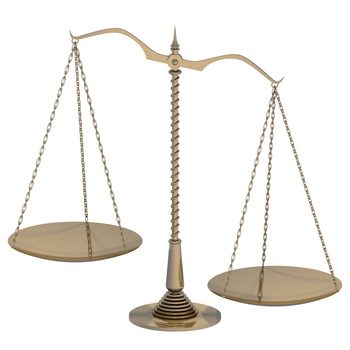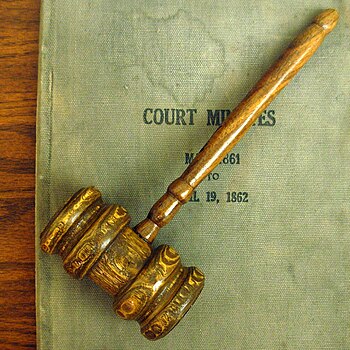______________________
| Fight Scene Example 3 (Photo credit: Wikipedia) |
 AJ, can you tell the ThrillWriting crowd about your background?
AJ, can you tell the ThrillWriting crowd about your background?AJ -
I was a dancer for over 20 years, pointe, modern, tap, etc. as a performer, teacher and choreographer. Now, I'm a writer, with 6 released books and over 20 best fiction or suspense of the year awards.
Fiona -
Very nice to have you. What a treat. Our topic du jour is getting a fat lip. Let's talk about reading first. AJ, when you read fight scenes, what makes you skim over the words?
AJ:
*Obvious writer techniques for breaks in action - like the character
pulls the trigger, and we stop for a mental review in a way that
doesn't flow.
* When I start rooting for the antagonist because the hero gets
really dumb all of a sudden and doesn't even know it.
* And sudden shifts in character, setting or even gravity i.e. we
need a knife, so our southern housewife was just carrying one
down a dark alley for no reason.
Fiona -
YES! Or suddenly has a skill-set that takes years of practice to develop.
BTW, this Southern housewife ALWAYS carries a knife down dark alleys.
Can you talk about pacing? What are some effective pacing points you can offer so that the fight has the desired impact?
AJ -
There's a common saying that fast things happen slow and slow things happen fast, and while that's a good general rule, it can be tiring to read something consistently set up that way.
Can you talk about pacing? What are some effective pacing points you can offer so that the fight has the desired impact?
AJ -
There's a common saying that fast things happen slow and slow things happen fast, and while that's a good general rule, it can be tiring to read something consistently set up that way.
I find good writing reflects what's going on in the scene: introspection gets long sentences with heavier clauses and bigger vocabulary. Fights often go by with short, clipped sentence structure. This is often a good time to use fragments, commands, and other very short pieces. Vocab should stay short and ideally even contain words with sharp or harsh sounds when read aloud.
Fiona -
Can you give us some fight scene sentence examples?
| Fight Scene Example 2 (Photo credit: Wikipedia) |
AJ
His fist was lead as it plowed into her cheek. She reeled. Gulped for air.
Fiona -
How do you like to lead into and out of fight scenes?
How do you like to lead into and out of fight scenes?
I know it's not formulaic - but there is a decided shift in real life fight events (to read about the body language of aggression, go HERE) you're eyeing your opponent, experiencing feelings, and then there's a trigger...
AJ -
This really plays back to that tunnel vision Eli Jackson was talking about. (See Eli Jackson's blog article HERE) When I shift into fight mode (IF I shift--sometimes I just open a chapter in a fight) then the scene starts wide and narrows. I tend to follow the characters' thoughts. So in many cases, there's a house, a room, a scene. Then as the fight begins, things shift scope. There's a lamp we can grab and wield if necessary. The gun at our back (or not, depending on how things go down) . . .
Fiona -
A fight scene is short on the page but long in planning - can you walk me through the process (knowing that you have a sister-ninja at the ready).
AJ -
I literally walk through the scene. My family likes to ask if it's a new dance. They usually get a dirty look from me, then get told to join me, so they can play my victim or something. I'll ask/make my husband stand with his arm out in a punch so I can see if I can grab his arm and how much effort it would take to pull or push someone his size. I also head down to the karate school and grab my two favorite ninjas (one is my sis, both are avid readers) to walk a scene for me. I always know what I want before I go in, and I always find out I'm either wrong, off base, or really had no idea what I wanted.
Fiona -
LOL - I was just working with a co-author over Skype and telling him about slicing an artery. He would NOT believe me. So I grabbed a daughter (2nd degree black belt) and a marker and told her to act out the scene to show him how she'd fall. My writing partner was horrified. So much fun!
AJ -
Yup - that's pretty much it. I don't understand why other people don't see how much fun it is. Afterward, I say thank you and happily bop up the stairs to my office and proceed to murder folks on paper. Good times.
Fiona -
You are helping to put together the writing/fighting weekend - what kinds of things as a writer did you feel it was important to make sure were included - the things every fight-scene writer should experience rather than make up in their imagination?
AJ -
I've added more of the "who" to have. I.E. we need someone who will teach X because so many writers use this type of weapon in their story. I'm on a handful of writers' forums, and I see the questions writers are asking. I'm making sure we are addressing fight needs across genres. Also, I'm making sure our writing classes fit writers' needs, too. Not just a big name to come in and tell a funny story but to teach something specific about fight writing.
Fiona -
What are some of the most common questions that writers ask about fight scenes - AND what weapons are they asking about.
AJ -
Right now, everyone is clamoring for longsword. Not only do we have longsword teachers and demos, we have several eras represented. Though no one asked outright about this second topic, the one that most makes writers light up is when we mention our physicist who will be teaching about lasers and a separate class for space/anti-gravity fighting.
Fiona -
Whoop! A physicist teaching AND anti-gravity fighting!!!
When you're writing a fight scene, how much research do you do? And, what does research look like to you?
AJ -
It takes a lot more to get it right than people think. I can swim, but I don't jump in the pool and think I'm Michael Phelps.
A lot of people don't realize that when writers slap things on paper, we get called on it, just the same way anyone else does when not giving their craft/job the work it requires.
It's my job to get it right. And I work really hard to make sure that everyone, fighters included, can read my books and not get pulled out of the story by errors.
| (Watermelon) Citrullus lanatus (Photo credit: Wikipedia) |
forms. In a lot of cases it can be done at the computer and involves reading or watching videos.
But whenever I can, I go hands on. I lived in a firehouse for a while, and went on every call. I went into a police station and interviewed people at all different positions as well as rode along for over 24 hours. I shoot things, I break into my own house, and I've murdered a handful of watermelons.
Fiona -
Can you tell me the story behind your favorite scar? (If no scar, then favorite harrowing story.)
AJ -
No scars really. calluses on feet from spinning on hardwood barefoot for years.
Most harrowing story: I was in the the grocery store (with my then 6mo old infant) when two masked men came in and gunned down the two Brinks Guards there to pick up the daily cash. It was planned, they were never caught, and it happened 8 feet away from me.
Can you tell me the story behind your favorite scar? (If no scar, then favorite harrowing story.)
AJ -
No scars really. calluses on feet from spinning on hardwood barefoot for years.
Most harrowing story: I was in the the grocery store (with my then 6mo old infant) when two masked men came in and gunned down the two Brinks Guards there to pick up the daily cash. It was planned, they were never caught, and it happened 8 feet away from me.
I learned that, no, you won't necessarily recognize gunfire when you hear it. And that traumatic situations are just that . . . shocking, out of nowhere, and very disjointed in our interpretations of them
Fiona -
WOW!
Since you were there as a mother - what did you do first?
AJ -
I ran first. Major props go out to the store personnel who knew what they were doing.
Fiona -
WOW!
Since you were there as a mother - what did you do first?
AJ -
I ran first. Major props go out to the store personnel who knew what they were doing.
They filtered everyone out through the back door in a relatively orderly fashion considering the multiple murder at the front of the store. I'm pretty calm in a tough situation, so I carefully unhooked the car seat from the cart. I remember hooking it into my elbow, thinking my son was heavy, and he would bounce more there, but I'd be able to get farther hauling him. I remember he laughed and thought it was fun.
Fiona -
And I thought this interview was fun! Thanks AJ.




























